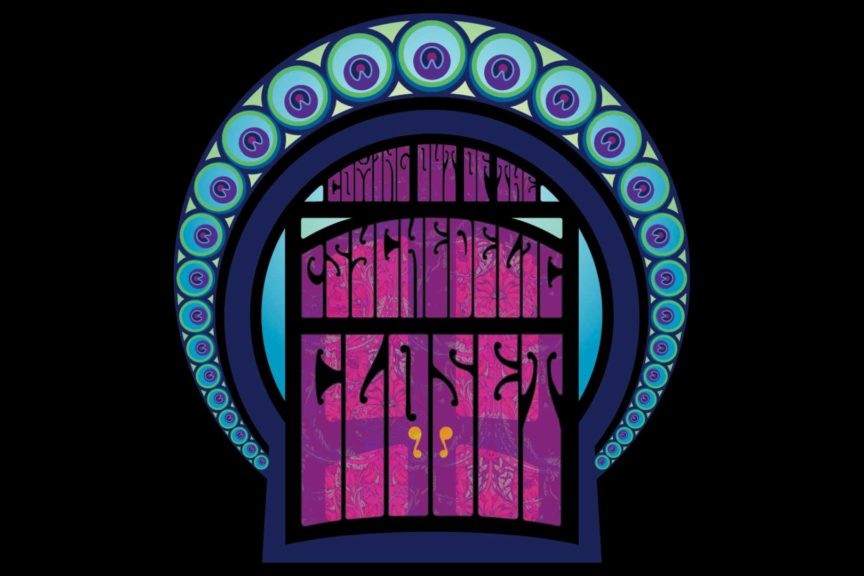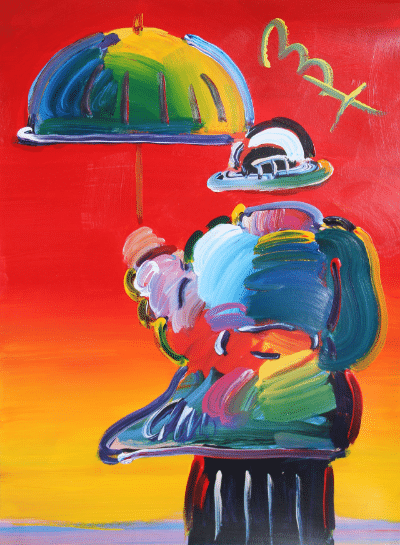Psychedelics and Identity Politics
The decades-long “War on Drugs” has created a situation in which the use of psychedelics is a social justice issue.
This is the introduction to the Coming Out of the Psychedelic Closet series. Part 2 | Part 3 | Part 4 | Part 5 | Part 6 | Conclusion

Psymposia is a 501(c)(3) nonprofit research and media organization that offers critical perspectives on drugs, politics, and culture. We rely on contributions from our readers and listeners. Your support is vital to sustaining Psymposia.
Support Psymposia’s independent journalism on Patreon and help us drive the Mystery Machine! We’re a bunch of meddling kids who are unmasking the latest shenanigans on the psychedelics beat.
The decades-long “War on Drugs” has created a situation in which the use of psychedelics is a social justice issue.
The existing international moratorium against psychoactives, including psychedelics, is a form of cultural hegemony. Although psychedelics have been used for millennia by cultures around the world, the United States during the 20th century successfully exported its ideology against “illicit drugs” through international treaties.
But this proscription against psychedelics such as LSD, ayahuasca, psilocybin mushrooms, and mescaline is problematic on multiple levels: It is an affront to cognitive liberty – the right to freedom of thought and mental self-determination. As Amanda Feilding – executive director of the Beckley Foundation – wrote in a recent newsletter: “If a person is not in any way damaging anyone else by their actions, it should be their freedom to choose their preferred state of consciousness.”
It is also an attack on freedom of religion. Although there are a few exceptions protected under the Religion Freedom Restoration Act, the ban against psychedelics outlaws the practices of longstanding indigenous traditions, and it disregards the spiritual import of psychedelics to which people have attested in countless other contexts.
In addition to these perspectives, I suggest that the ban also impacts the realm of identity politics. Since psychedelics are deeply entwined with some individuals’ sense of personal identity, I advocate for cultural and political activism to address the systematic discrimination against psychedelic use and psychedelic interests.
Over the past five years, I have drawn on queer theory and the LGBT rights movements for inspiration. Since psychedelics have been returning to major research universities after decades of prohibition, our moment holds the potential to shift the public perception of psychedelics away from dogmatic and fear-based generalizations. By encouraging individuals to come out of the closet about their psychedelic interests and experiences, we extend the universal struggle for the human right to self-determination.
Rather than an uncritical appropriation of queer discourse, this alliance represents a commitment to “intersectionality” – the theory that various kinds of oppression and prejudice are interconnected and cannot be addressed in isolation. Linking the struggle for social justice across identity categories, intersectionality resists discrimination based on race, gender, sexual orientation, ability, and age, among other categories. That the inclusion of psychedelic identity with these categories remains controversial demonstrates the work that remains for securing the rights of individuals to determine their own states of body and mind.
Born This Way
Critics of my use of queer terminology have argued that psychedelic identity isn’t a “real” identity the way that gay identity is real. Although people are born gay, they argue, no one is born interested in psychedelics. Since people are born gay the same way that people are born black, they claim that it’s acceptable for the gay rights movement to draw from the discourses of civil rights and identity politics, but they don’t think it’s acceptable for psychedelic people to draw on gay rights discourse.
I see many problems with this argument.
For one, many queer theorists have questioned the universal reliance on biological explanations for sexual preferences. Biological predestination relies on an absolute “nature versus nurture” dichotomy that is unable to accommodate all sexual minorities. For example, Suzanna Danuta Walters writes in The Tolerance Trap about political lesbians who characterize their sexual desire as “a positive and pro-woman choice that explicitly rejected both compulsory heterosexuality and medicalized models of homosexuality.”
Vera Whisman, author of Queer By Choice: Lesbians, Gay Men, and the Politics of Choice, argues that basing the legitimacy of homosexuality on the absence of choice is disempowering. To predicate human rights through biological determinism implies that homosexuality is acceptable only if it is not chosen, and thus it remains “stigmatized, illegitimate, deviant.” Even if taking psychedelics is a choice, the presence of choice does not preclude the formation of social identities around them.
But even within the biological framework, it’s possible that some people are born with a predisposition to experiment with psychedelics or respond favorably to them.
As famed psychedelic chemist Sasha Shulgin writes in the beginning of PiHKAL,
“For many thousands of years, in every known culture, there has been some percentage of the population… which has used this or that plant to achieve a transformation in its state of consciousness.”
For that segment of the population, the use of psychedelics can feel like a homecoming, as Ann Shulgin’s description of her first mescaline experience:
“The funny thing is that, despite all the newness, there’s something about all of it that feels – well, the only way I can put it is that it’s like coming home. As if there’s some part of me that already knows – knows this territory – and it’s saying, Oh yes, of course! Almost a kind of remembering!”
Just as someone can be gay without ever having sex, I believe that some people are psychedelic explorers of the mind without ever taking drugs.
As Bill Richards, author of Sacred Knowledge: Psychedelics and Religious Experiences, speculates:
“Some people live their lives, never worrying about where we came from, where we’re going and why we’re on this little planet spinning through space. Others do. Maybe it’s a gene. Some of us have a religious or philosophical gene that wants to understand what life means.”
Accordingly, one can argue that psychedelic people have existed throughout time and across cultures.
Extending Queer Theory Beyond Sexual Identity
Although the oppression of psychedelic people is by no means identical to the oppression of sexual and gender minorities, the continuing struggle of one oppressed group is not sufficient reason to avoid discussions about other kinds of systemic oppression.
I argue that it doesn’t serve us to cherry-pick which identity groups are worth protecting and which are not. We need to focus on a common set of core principles and honor the right of individuals to make decisions about their own minds and bodies. The struggle to upend prejudice and discrimination will never be won by simply determining the “right” set of identity categories worthy of protection.
In recent years, queer theorists have undermined the notion of a fixed and stable “identity” or “authentic” self that remains constant throughout time. Some writers have even suggested that focusing political efforts within the framework of identity politics is shortsighted, since it relies on the very political systems and dichotomous us/them categories that encourage discrimination and oppression to begin with.
Rather than attempt to assimilate within these expected categories – as Paisley Currah writes in Sexual Identities, Queer Politics:
“Queer theorists have focused their attention on identity’s contingency, fluidity, and constructedness, and suggested that it is in the destabilization of identity categories that effective political practice is to be found.”
Many queer theorists now emphasize how identities are continuously shaped by discourses and relations of power. Expanding on this notion, Jimmie Manning writes in Queer Identities/Political Realities that:
“Queer theory’s spirit… is about not accepting one way of living and being; it is about the radical notion that we are not trapped in essentialized identities.” Rather than being limited to sex and gender, queer theory is “also about a person’s right to do what they please with their body.” Manning concludes, “If queer theory is truly an umbrella theory… then it is time for the queer to go where it may not be welcome.”
Carl Stychin describes the unbounded scope of this umbrella theory in Law’s Desire: Sexuality and the Limits of Justice:
“[Q]ueerness might challenge binary and categorical thinking which has inscribed the ‘normal’ and the ‘other.’ Central… is the contestation of boundaries and categories, not only of sexual identity, but more widely to include all boundaries of normalcy… It represents a subversion of categorical thinking so that ‘queer’ is capable of constant reworking to serve new political purposes.”
Taking all of this into account, it is ultimately counterproductive to discredit claims to psychedelic identity while acknowledging others. Psychedelic identity unquestionably meets the criteria of contesting boundaries of normalcy, and of advocating for the individual’s freedom to make decisions about their body. These parallels indicate that the oppression and alienation of both psychedelic and queer people results from a common cultural prejudice against those who experience and interact with the world differently from the dominant and traditional population.

Parallels With the Struggle for Civil Rights
Despite critics’ resistance to acknowledging the legitimacy of a psychedelic identity, the gay rights movement initially had to defend itself from criticisms that were essentially identical to the criticisms being directed against psychedelic people today.
For instance, some argue that psychedelic people don’t have a right to claim that they’re an oppressed group, since psychedelic people are mostly from privileged white communities, focused on appropriating legitimate struggles in service of hedonistic recreation.
Compare this to legislation debates about gay rights from the early 1990s, as described by Michael Bronski in his book The Pleasure Principle.
Bronski describes the view that:
“Gay men and lesbians did not need ‘special rights’ because, far from being disenfranchised, they already were wealthier, had better jobs, more leisure time, and more disposable income than almost any other group in the U.S. economy… For many in the mainstream, the ‘privileged economic status’ of homosexuals was conflated with their already established view of gay people as pleasure seekers and sexual libertines.”
Although being gay was seen by many as a deviant lifestyle choice, gay people weren’t convinced by this argument.
Michael Nava and Robert Dawidoff set out a defense of the alliance between gay rights and civil rights in their book Created Equal: Why Gay Rights Matter to America. For our purposes here, I swapped out the authors’ original race and sexuality terms for my own sexuality and psychedelic terms. The argument is still valid with these changes. Take, for instance, this altered quote:
“The special character of [sexuality] within this society and of the [gay] rights movement that grew out of it cannot preempt other movements for civil rights… [Some members of LGBT communities] are understandably sensitive and protective about the routine appropriation of their particular historical experience and the particularity of the extraordinary movement they carried forward to challenge their oppression. Nevertheless, the movement’s claim… was to a common set of principles that must apply to everyone… If women, racially and ethnically diverse groups, [LGBT people] and now [psychedelic people] rush to the standard first carried by the African-American civil rights movement [and subsequently by the LGBT movement], that is not stealing but believing. Those who are so quick to denounce the appropriation of civil rights by movements based in gender, sexual orientation, physical ability, and [other modes of identification] probably need to examine their own record with respect to human differences other than race
The authors suggest that the key contribution of the gay rights movement to the history of civil rights and civil liberties is its re-emphasis on the individual – an “individual asserting personal rights to personal freedom for personal choice about the personal life.”
They continue:
“The labeling of gays as… degenerate and unnatural is the same kind of labeling that has always been used to justify the denial of rights to individuals belonging to ‘minority’ communities.” People who are quick to shoot down the possibility of a psychedelic identity “deny the validity of personal experience when it is at odds with convention… In effect, [psychedelic] men and women are taught that their experience of themselves as decent, productive, loving humans is false, because [drug use] is unnatural and sinful.”
In the face of this, the “act [of coming out] is the acceptance of one’s fundamental worth… in the face of social condemnation and likely persecution.”

Coming Out as Psychedelic
Even if identity categories can’t be fixed and essentialized, they remain useful vantage points to challenge discrimination and forge communities through solidarity. Behind identity labels are, in the words of Jimmy Manning, real “people who are struggling to enjoy the same dignities, privileges, and rights to self-expression and full life as others.”
Within this context, we need to expand the concept of identity in order to extend the right to self-determination to all people. Transformative politics requires the incorporation of diverse viewpoints and identities. When we refuse to listen to someone’s descriptions of their lived experiences of self-identity (as a psychedelic person, for instance) and of their encounters with discrimination, we risk reinforcing the conditions that give rise to oppression to begin with.Coming out about one’s psychedelic interests or experiences is important for both personal and cultural reasons.
For those who feel that their identity is inseparable from their experiences with psychedelics, being forced to keep quiet because of stereotypes, stigma, and misinformation can be emotionally crippling and alienating.
As Sandra Lee Bartky writes in Sympathy and Solidarity, “There is an inexpressible relief in ‘coming out’… Joy and relief are proportional… to the corrosive effects of having to live a lie at best, at worst, having to live under highly repressive circumstances, i.e., in fear of exposure, persecution, and disgrace.”
By openly expressing the impact of psychedelics on our lives, we reveal the vast spectrum of doctors, lawyers, scientists, writers, and politicians who encompass the category of psychedelic people, thereby dismantling dismissive assumptions and overgeneralizations that encourage silence and secrecy. It is only by speaking out as psychedelic people that we are able to effectively “find the others,” building solidarities among participants that can form the basis of a unified political movement – a community – with the potential to expand our culture’s tolerance for difference.
Coming out as psychedelic empowers psychedelic practices of knowledge and community, and it connects this movement to other continuing struggles for social justice.
In adopting the language of civil rights and gay rights, we place ourselves in the context of these larger struggles and the importance of fighting against oppression of all kinds.
Read part 2: Why I’m Staying in the Psychedelic Closet
Hey! Before you go… Psymposia is a 501(c)(3) non-profit media organization that offers critical perspectives on drugs, politics, and culture. We strive to ask challenging questions, and we’re committed to independent reporting, critical analysis, and holding those who wield power accountable.
Our perspectives are informed by critical analysis of the systemic crises of capitalism that have directly contributed to the unmitigated growth of addiction, depression, suicide, and the unraveling of our social relations. The same economic elite and powerful corporate interests who have profited from causing these problems are now proposing “solutions”—solutions which both line their pockets and mask the necessity of structural change.
In order for us to keep unpacking these issues and informing our audience, we need your continuing support. You can sustain Psymposia by becoming a supporter for as little as $2 a month.
Neşe Devenot
Neşe Devenot is the Medicine, Society and Culture Postdoctoral Scholar in Bioethics at the Case Western Reserve University School of Medicine. Previously, she was a founder of the Psychedemia interdisciplinary psychedelics conference, a Research Fellow at the New York Public Library’s Timothy Leary Papers, and a Research Fellow with the New York University Psilocybin Cancer Anxiety Study. She was awarded Best Humanities Publication in Psychedelic Studies from Breaking Convention and received a Women of the Psychedelic Renaissance grant from Cosmic Sister. Her research explores the function of metaphor and other creative uses of language in descriptions of psychedelic experiences, as well as abuses of power and hegemonic social forces within the psychedelic community.





